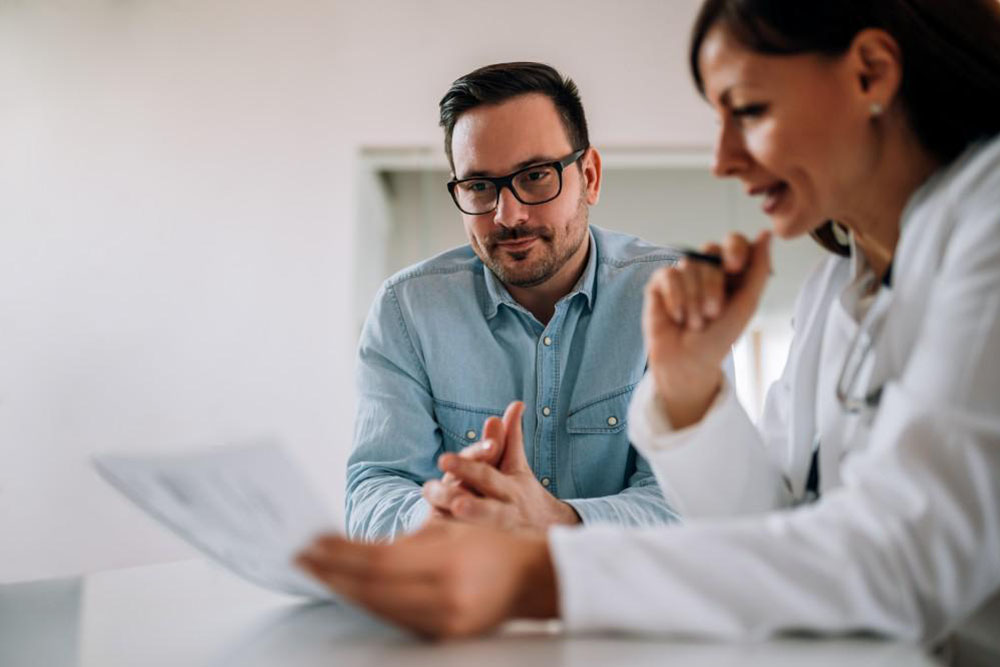What Is Diverticular Bleeding?
Diverticular bleeding happens when small pouches (diverticula) in the colon wall start to bleed. These pouches develop over time often after age 40 and if a blood vessel within one ruptures, you may notice bright red or maroon blood in your stool.
Common Causes and Risk Factors
- Age : Risk increases after 40 years old
- Low-fiber diet : Hard stools raise pressure in the colon
- Lack of exercise : Can weaken colon wall and worsen diverticula
- Blood thinners & NSAIDs : Increase risk of bleeding
- Family history : Genetics may play a role
Signs and Symptoms
- Sudden, painless rectal bleeding
- Bright red or dark red (maroon) blood in stool
- Feeling dizzy or lightheaded
- Low blood count (anemia)
How Dr. Rishi Diagnoses Diverticular Bleeding?
Dr. Rishi Chadha uses a step-by-step approach:
Medical History and Exam
He reviews your bleeding episodes, past colon issues, medications (especially blood thinners or NSAIDs), diet, and family history, then performs a focused abdominal and rectal exam.
Blood Tests
Complete blood count to assess hemoglobin/hematocrit for anemia, coagulation studies to check bleeding risk, and basic metabolic panel.
Colonoscopy
Performs a colonoscopic evaluation to identify and potentially treat the bleeding diverticulum directly with clips or thermal therapy.
CT Angiography
- Rapid, contrast-enhanced scan to localize active bleeding sites when colonoscopy is not feasible or bleeding is brisk.
- Helps plan interventional radiology procedures if needed.
Angiography (if needed)
Selective mesenteric angiography can pinpoint the bleeding vessel and allow embolization to stop the bleed in severe cases.
Frequently Asked Questions
How long does diverticular bleeding last?
It usually stops within 1-2 days. Dr. Chadha will keep a close watch and intervene if needed.
Is diverticular bleeding dangerous?
It can be if bleeding is heavy or recurrent. Prompt diagnosis and treatment help prevent complications.
How can I stop diverticular bleeding at home?
Rest, stick to a clear-liquid or light diet, stay hydrated, and avoid NSAIDs. Seek medical care for heavy bleeding.
Diverticular bleeding or hemorrhoids - what's the difference?
Diverticular bleeding is painless and comes from the colon. Hemorrhoids often cause pain, itching, or discomfort around the rectum.
What does diverticular bleeding look like?
You may see bright red or maroon blood in the toilet or on your stool, often without pain.
Do I need a colonoscopy?
Yes. A colonoscopy locates the bleeding diverticulum and allows for treatment such as endoscopic clipping.
Can diet alone prevent diverticular bleeding?
Eating a high-fiber diet helps reduce pressure in the colon but doesn't eliminate all risk.
Are there risks with endoscopic clipping?
Endoscopic clipping is very safe. Rare side effects include infection or a small tear; Dr. Chadha's team takes every precaution.
What is the recovery time?
Most patients feel better and return to normal activities within 1-2 days after bleeding stops or is treated.
How do I book an appointment?
Call our Houston office or use the online form to schedule a consultation with Dr. Rishi Chadha at GastroDoxs.











